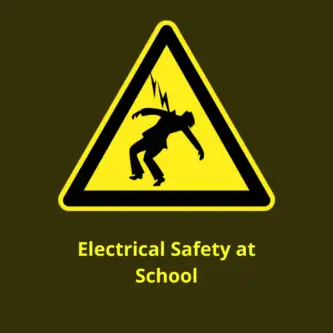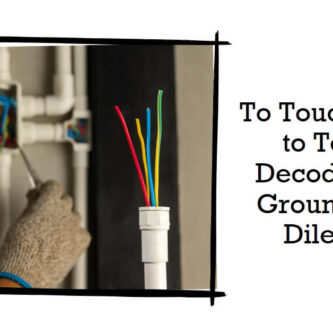Extension cords are incredibly useful when you need to plug something in and the outlet is too far away.
However, not all extension cords are created equal, and using the wrong one for your appliance could lead to serious safety issues.
In this article, we’ll go over when it’s safe to use extension cords for your appliances and when it’s not.
Can you plug appliances into extension cords?
Yes, you can plug appliances into extension cords, but there are some important things to consider before doing so.
Firstly, you need to make sure that the amperage rating of the extension cord is suitable for the appliance you want to use it with.
For example, you can safely plug a lamp, a fan, or a phone charger into an extension cord, as these appliances typically have lower amperage ratings.
However, you should avoid using extension cords with high-powered appliances that draw a lot of electrical current, such as space heaters, air conditioners, and refrigerators. These appliances require a lot of power and can easily overload the extension cord, which can be a serious fire hazard.
In general, it’s always best to use extension cords only for short-term purposes and not as a permanent solution.
If you need to use an appliance for an extended period of time, it’s best to use a more permanent solution, such as a dedicated outlet.
When It’s Safe to Use Extension Cords
- Check the Amperage: One of the most important things to consider before using an extension cord for an appliance is its amperage rating. The amperage rating is the maximum amount of electrical current the cord can safely handle. You can usually find this information on the cord’s packaging or in the manual. If the amperage rating of the cord is equal to or greater than the amperage rating of the appliance, it’s safe to use.
- Short-Term Use: Extension cords should only be used for short-term purposes. If you need to use an appliance for an extended period of time, it’s best to use a more permanent solution, such as a dedicated outlet.
- Indoor Use Only: Extension cords should only be used indoors. Outdoor extension cords are built to handle weather conditions and other factors that indoor cords are not designed to withstand.
- Lay it flat instead of coiling it up tightly When using an extension cord, it’s best to lay it flat instead of coiling it up tightly. This is because coiling the cord tightly can cause it to overheat, which can be a serious fire hazard. Instead, you should stretch out the cord as much as possible and avoid twisting it or creating any sharp bends. This will help to ensure that the cord remains cool and doesn’t become a safety hazard.
- Proper Storage: When not in use, extension cords should be stored properly. This means coiling them loosely and hanging them up to prevent damage and tangling.
- Avoid winding it too tightly When storing an extension cord, it’s important to avoid winding it too tightly. This can cause the wires inside the cord to become damaged or twisted, which can be a safety hazard. Instead, you should coil the cord loosely and store it in a way that allows it to lay flat without being kinked or tangled. This will help to keep the cord in good condition and prevent any potential safety hazards.
When It’s Not Safe to Use Extension Cords
- Overloading: One of the biggest risks of using an extension cord is overloading it. When too many appliances are plugged into a single cord or outlet, it can cause the cord to overheat and potentially start a fire. Always follow the manufacturer’s instructions and never exceed the cord’s amperage rating.
- Damage: Extension cords that are frayed, cracked, or otherwise damaged should never be used. This can also lead to overheating and a potential fire hazard.
- Distance: If the distance between the appliance and the outlet is too great, it may be tempting to use multiple extension cords to bridge the gap. However, this is not safe and can lead to overloading and overheating.
- Outdoor Use: As mentioned earlier, indoor extension cords should not be used outdoors. They are not built to withstand the elements and can pose a serious safety risk.
- Improper Use: Using an extension cord for a purpose it was not intended for is never safe. For example, using a two-pronged cord in a three-pronged outlet can be dangerous and lead to electrical shock.
How much wattage can an extension cord handle?
The amount of wattage that an extension cord can handle depends on several factors, such as the length and thickness of the cord, the type of insulation used, and the amperage rating of the cord.
Extension cords are typically rated by their amperage, which is a measure of the amount of electrical current that can flow through the cord. The amperage rating of the cord determines the maximum wattage that can be safely used with the cord.
For example, a standard household extension cord rated for 15 amps can handle a maximum of 1,800 watts (15 amps x 120 volts) of power. However, this rating assumes that the cord is no longer than 50 feet and is used with an appliance that also has a 15-amp rating.
If you’re using a longer cord or an appliance with a higher amperage rating, you’ll need to use a cord with a higher amperage rating as well. For example, if you’re using a 20-amp appliance, you’ll need a cord that is rated for at least 20 amps to safely handle the power load.
It’s also important to note that using an extension cord that is too small or too long for the intended use can cause the cord to overheat and become a fire hazard. To determine the appropriate cord size and length for your needs, it’s best to consult the manufacturer’s instructions for your appliance or seek the advice of a qualified electrician.
Conclusion
Extension cords can be incredibly useful, but they should be used with caution. Always make sure the cord’s amperage rating is suitable for your appliance, use it only for short-term purposes, and store it properly when not in use.
Never overload the cord, use it outdoors, or use it for a purpose it wasn’t intended for. By following these guidelines, you can safely use extension cords for your appliances and avoid any potential safety hazards.
you work With Electricity! Don’t leave empty-handed!
Looking to stay ahead of the game in the world of electrical engineering? Subscribe to my YouTube channel and gain access to exclusive content you won’t find anywhere else!
The staff I recommend (Amazon Affiliate Links to products I believe are high quality):
- Economy 120 Volt/60Hz AC Power Source – Step-Down Voltage & Frequency Converters 1800W
- UNI-T Digital Multimeter Tester UT139C
- 50-Amp Extension Cord for RV “100ft”
- Voltage Stabilizer 110/220v
- Hair Dryer “best selling“
- TOSHIBA EM131A5C-BS Countertop Microwave Ovens
Disclaimer: This contains affiliate links to Amazon products. I may earn a commission for purchases made through these links.


